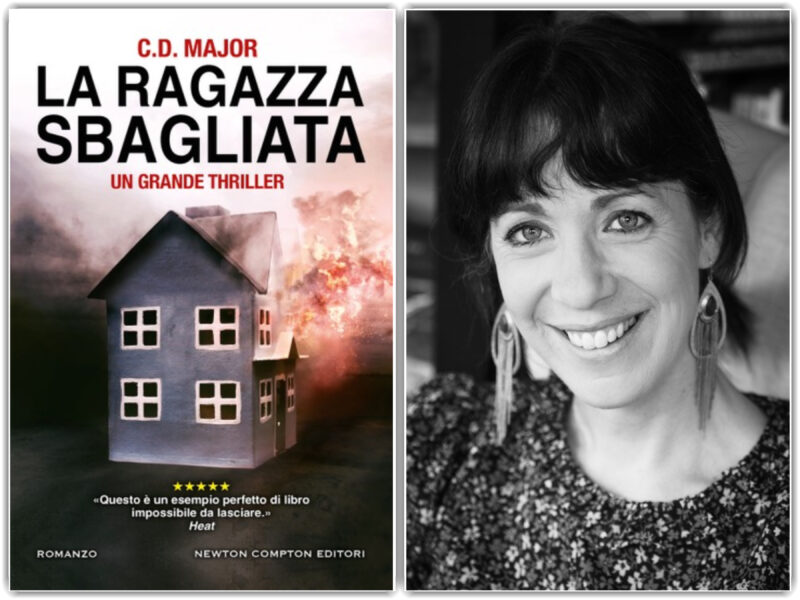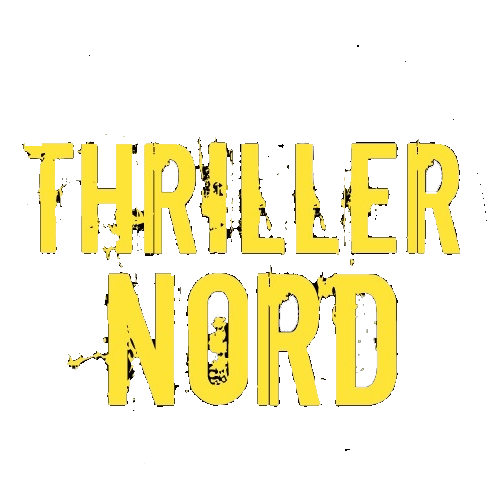A tu per tu con l’autore
Hi Cesca, welcome at ThrillerNord.
Ciao Cesca, benvenuta su ThrillerNord.
“The other girl” is a psychological thriller that deals with psychiatric illness. How did you prepare to write it?
I was fascinated by the history of how we treated mental illness, and in particular how some women ended up being incarcerated in places such as Seacliff. I read a number of article, library pieces and biographies to get an idea of what living in those places might have been like. I definitely hope the experience feels authentic.
“La ragazza sbagliata” è un thriller psicologico che affronta il tema della malattia psichiatrica. Come ti sei preparata?
Mi ha affascinata la storia di come la malattia mentale sia stata trattata, e in particolare di come alcune donne siano finite rinchiuse in posti come Seacliff. Ho letto numerosi articoli, documenti e biografie per farmi un’idea di come dovesse essere vivere in luoghi del genere. Spero davvero che l’esperienza risulti autentica.
I was deeply impressed by the story of young Edith. As a mother, I really felt uneasy. Being a mother yourself, were you able to detach yourself from the character or did you suffer with her?
I had a young son at the time of writing (I now have twin girls too!) and definitely found it difficult to imagine a parent wanting to send their child away like that. I think the reasons behind the incarceratuon of Edith – the belief that she really was possessed in some way – made it more believable, and I hope in the book I showed the mother’s uncertainty in a time when women would have to have gone along with what their husbands wished.
Mi ha molto colpita la narrazione delle vicende relative alla Edith bambina. Da mamma, ho avvertito un forte disagio. Anche tu sei madre: sei riuscita a distaccarti dal personaggio o hai sofferto insieme a lei?
Quando scrivevo avevo un figlio piccolo (ora ho pure due femmine!) e davvero ho avuto difficoltà a immaginare un genitore che vuole lasciare il proprio bambino in quel modo. Credo che le ragioni che stanno dietro la reclusione di Edith ‒ la convinzione che in qualche maniera lei fosse davvero posseduta ‒ lo abbiano reso più credibile, e spero di essere riuscita a mostrare nel libro l’incertezza della madre in un’epoca nella quale le donne dovevano assecondare i desideri dei loro mariti.
I really appreciated your style: direct, without embellishments, suited to the rhythm of the story. Who are your models? If I may dare guess, I sensed some echoes of King and Tryon, especially in the description of the setting. Please correct me if I’m wrong.
Thank you so much! I read pretty widely – a lot of commercial fiction in a range of different genres and memoir too – so think I have been influenced by plenty of other writers. I do try and write in an accessible way and hope I can really bring a place to life for the reader. I think coming at writing as an actor originally helped me want to always visualise the books I read and I do genuinely see the places in my mind as I describe them!
Ho apprezzato il tuo stile: diretto, senza fronzoli, adatto a sostenere il ritmo narrativo. Ti chiedo chi sono, se ci sono, i modelli a cui ti ispiri. Se posso azzardare, ho avvertito echi di King e di Tryon, soprattutto nella descrizione delle ambientazioni. Correggimi se sbaglio.
Grazie mille! Leggo di tutto ‒ molti romanzi commerciali che spaziano tra generi diversi e anche storici ‒ per cui penso di essere stata influenzata da molti altri scrittori. Cerco di scrivere in maniera accessibile e spero davvero di riuscire a rendere vividi i luoghi per chi legge. Penso che aver iniziato a scrivere come attore all’inizio mi abbia aiutata a voler sempre visualizzare i libri che leggo e così riesco a immaginare realisticamente i luoghi che descrivo!
I read from your biography that you live in the UK, but “The other girl” is set in 1942 New Zealand. It’s a very peculiar setting, why did you choose it?
I became fascinated by the terrible and tragic fire that claimed the lives of 37 women in Seacliff that year in New Zealand. The fire had two survivors and I started to fictionalise their story. I did consider moving the asylum to the UK but that would have felt wrong as the event did take place and I thought it was important to share details of it, hence the Historical Note I include at the end of the book.
Leggo dalla tua biografia che vivi in Inghilterra, ma “La ragazza sbagliata” è ambientato in Nuova Zelanda nel 1942. Ambientazione particolare, cosa ti ha spinto a sceglierla?
Sono rimasta affascinata dal terribile e tragico incendio che è costato la vita a 37 donne a Seacliff quell’anno in Nuova Zelanda. All’incendio sopravvissero solo due persone e ho romanzato la loro storia. Ho preso in considerazione l’opportunità di trasferire l’ambientazione in Inghilterra ma non sarebbe stata quella corretta e ho ritenuto che fosse importante condividerne i dettagli, da qui la Nota Storica che includo alla fine del libro.
Having read “The other girl” and knowing your background I think you are a very organized writer, but maybe I’m wrong. When you write are you impulsive or methodic?
I think I’ve got more organised!! I now love to plan and do complete quite detailed chapter outlines, however I am often tinkering with them as I write and new ideas emerge and some twists and reveals really do just present themselves to me. But yes I am quite strict in that I have to write around young children so cannot wait for the muse to strike, I just need to sit in my chair and try to do some work!
Avendo letto “La ragazza sbagliata” e conoscendo la tua formazione, suppongo che tu sia una scrittrice organizzata, da scaletta. Ma magari mio sbaglio. Quando scrivi, sei ordinata o impulsiva?
Penso di essere diventata più organizzata!! Adesso amo pianificare e fare schemi abbastanza dettagliati dei capitoli, tuttavia spesso li rimaneggio mentre scrivo ed emergono nuove idee e mi si presentano colpi di scena e rivelazioni. Comunque sì, sono abbastanza metodica anche perché devo scrivere con bambini piccoli attorno e quindi non posso aspettare l’ispirazione, devo sedermi e provare a lavorare!
Suggest to our readers three books to put under the Christmas tree. I suggest yours.
That is kind, thank you. I have read so many wonderful books this year. I hope they are translated and would select – SMALL PLEASURES by Clare Chambers – strange, unique, moving and amusing mystery about a women who claims to have had a Virgin Birth, THE VANISHING HALF – Brit Bennett – a beautiful read about the very differing lives and the changed relationship of black twin sisters when one re-invents herself as a white woman when an adult and REPUTATION by Lex Croucher – a joyful Regency romp with a really funny wicked modern voice!
Tre libri che auguri ai nostri lettori di trovare sotto l’albero di Natale. Il tuo lo consiglio io.
Che carina, grazie. Quest’anno ho letto tanti libri meravigliosi. Spero che siano stati tradotti e possano essere scelti.
SMALL PLEASURES di Clare Chambers, un mistery particolare, unico, divertente e commovente che parla di una donna che dichiara di aver avuto un parto virginale; THE VANISHING HALF di Brit Bennet, una bella lettura riguardo le vite differenti e il mutato rapporto di due gemelle nere quando una delle due si reinventa come donna bianca; e REPUTATION di Lex Croucher, un gioioso Regency con una voce moderna e malvagia davvero divertente!
Thank you for the chat!
Thank you so much for asking me to talk to you and for reading the book. I LOVE the cover and am so pleased it is reaching more readers.
A cura di Claudia Cocuzza
Acquista su Amazon.it:

